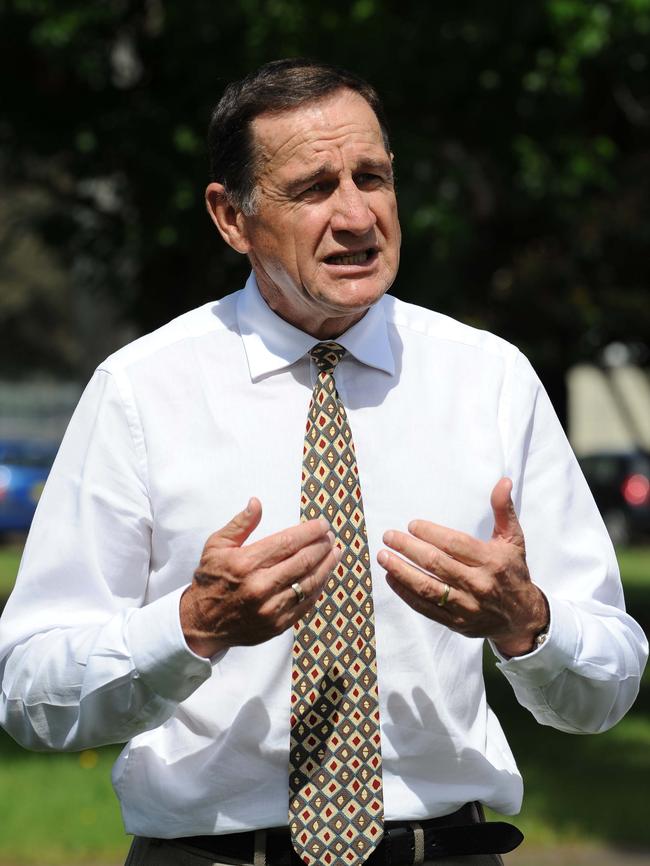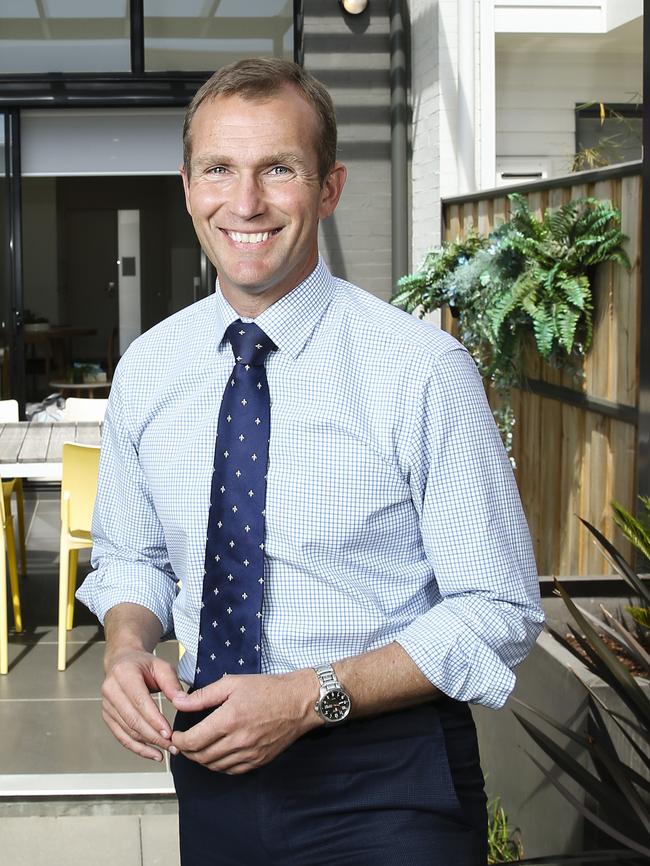HSC overhaul means students face prospect of not being awarded it if marks not high enough
THE most sweeping overhaul of the HSC in two decades comes with a sting in the tail for students — thousands of school leavers will face the prospect of failing to be awarded it.

NSW
Don't miss out on the headlines from NSW. Followed categories will be added to My News.
THE most sweeping overhaul of the HSC in two decades comes with a sting in the tail for students.
Thousands of school leavers will face the prospect of failing to be awarded the HSC because they have not reached recommended levels in literacy and numeracy.
Instead, in a major departure from the past, these students will be handed the RoSA (Record of School Achievement) which shows their academic results and other achievements.
Year 9 students who sit the National Assessment Program — Literacy and Numeracy (Naplan) across Australia next month will be the first group who will have to “earn” the HSC rather than getting it by merely turning up.
Those who do not meet the HSC benchmarks, however, will have opportunities to reach the required standard by sitting tests at least twice a year in Years 10, 11 and 12 and for up to five years after leaving school.
By setting mandatory benchmarks for students to be awarded the HSC, the NSW government is sending a strong signal that the credential must carry a pass standard.

The HSC no longer will be “just a ribbon for turning up” but Education Minister Rob Stokes emphasises that “no student will be excluded from sitting for the HSC on the basis of Year 9 Naplan results”.
Mr Stokes says: “We have introduced the HSC reforms to raise the bar for our students leaving school, to make sure they have a minimum standard of literacy and numeracy, to motivate them and challenge them to achieve at the highest possible level and to prepare them for life after school.
“Literacy and numeracy skills are a priority and our strategy commits $340 million over the next four years to focus on early intervention.
“Needs-based funding can be used across all school years to employ staff to work one-on-one with students, run literacy programs and assist in the professional development of teachers.”


From 2020, in order to receive the HSC, Year 12 students will have to reach a minimum standard described by the NSW Education Standards Authority as a “functional level of literacy and numeracy necessary to succeed in everyday life and work”.
In Year 9 students will need at least a Band 8 score — the third highest — in each of their Naplan reading, writing and numeracy tests, or a pass in the online literacy and numeracy test in Years 10, 11 or 12.
Naplan data shows that about 24 per cent of Year 9 students are at or below the national minimum standard for reading and about 19 per cent are at or below the standard for numeracy.
Standards Authority documents state: “These students are at risk of not attaining the skills they need in life unless they receive support.
“Community, business and employers require an assurance that students have the literacy and numeracy skills they need when they leave school.”
Deputy president of the NSW Teachers’ Federation Gary Zadkovich has called for “systemic support for schools” to help students make the grade but, echoing other critics, he takes a swipe at the government’s plan.
“As a result of the Department’s obsession with using standardised tests and data collection as a substitute for supporting quality teaching and learning, NSW public schooling now faces the prospect of many thousands of students not being awarded an HSC in years to come.”
Labor’s education spokesman Jihad Dib expresses concern that disadvantaged schools and students will need extra help to turn their results around.
Meanwhile, former inspector of English Dr Don Carter suggests the government is “attempting to reduce our children to mere automatons for the workplace”.
“I am concerned that reforms to the HSC will see students graduating with only a narrow set of workplace skills and largely incapable of developing aptitude for life outside of work as community and family members,” Dr Carter says.
“How much testing can our students take? This means that 14-year-olds — three years or so from sitting for their HSC — in the middle of adolescence and establishing a sense of self-identity, will be saddled with the pressure of achieving the benchmark.
“And if they don’t meet this standard they will have to keep attempting the test until they do.”
Serious challenges in school achievement, however, have forced the government’s hand.
These include international studies that show Australia is falling behind other nations in core subjects and that fewer students elect to complete extension HSC courses.
Data shows that up to one-fifth of Australia’s 15-year-olds fail to meet the international proficiency standard in literacy and numeracy.
And despite an increase in HSC students’ total entries in advanced STEM (Science, Technology, Engineering and Maths), courses fell about 7 per cent between 2004 and 2014.
RELATED NEWS
HSC Results 2016: Top achievers’ list
Education Minister Rob Stokes guarantees HSC candidates can study Wordsworth and Coleridge
Enrolments in extension courses fell from 25,726 in 2004 to 22,283 in 2014.
The proportion of students studying the easier practical mathematics courses rose by 20 per cent while the proportion of students studying calculus-based mathematics fell 14 per cent.
Between 2004 and 2014 student enrolments in English Extension 1 fell by 19 per cent and English Extension 2 dropped by 27 per cent.
Global tests show 29 per cent of Year 8 Australian mathematics students reached the top two levels of achievement compared with 77 per cent of Korean students.
Among Australian Year 8 science students 36 per cent of students reached the top two levels of achievement compared with 57 per cent of Korean students.
The NSW Business Chamber, the NSW Minerals Council and other employers consistently raise concerns about the literacy and numeracy skills of school leavers.
About one-quarter of apprentices have low literacy and numeracy skills, which affects their job prospects and the ability of employers to build sophisticated STEM skills in their workforce and upskill their employees.
The standards authority has responded by establishing science extension courses to provide greater opportunities for students with an aptitude for the STEM disciplines.
The reforms follow feedback from parents, educators, business and the community about preparing students for 21st-century careers, and are designed to strengthen the integrity of the HSC.
Chairman of the standards authority Tom Alegounarias says the HSC has a “proud record”.
“The changes ensure the certificate remains modern to meet the needs of all students,” he says.


